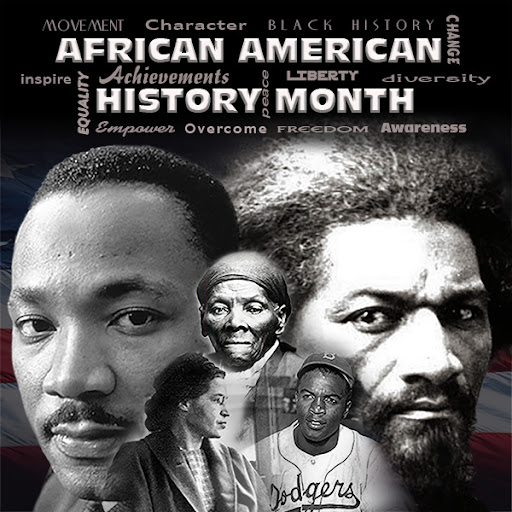Heroes of Black History

Some Celebrated Faces
February 22, 2023
CENTENNIAL HIGH SCHOOL- Countless famous figures, from George Washington to Audrey Hepburn, have filled American history; however, a percentage that also deserves to be celebrated is filled with others: names of African American people who faced great oppression and prejudice. Known as the month of Valentine’s Day and discounted chocolate, February holds a celebration of African Americans that struggled to bring America together and create the equality present today.
One of these people is Rosa Parks, who started the Montgomery Bus Boycott back in 1955 when she didn’t want to give up her seat. She was a secretary for the National Association for the Advancement of Colored People until 1956 and later a seamstress. She, unfortunately, got arrested but instead used it as a chance to appeal the conviction and challenge segregation in her home of Alabama. This pivotal event ignited a spark that grew into a civil rights boycott. According to The Black Experience in America: From Civil Rights to the Present, the “MIA [Montgomery Improvement Association] leaders were able to sustain the boycott until November 1956, when the NAACP won a Supreme Court order to desegregate the bus system.” People all around the U.S. who participated in it made black rights more known. For her role, “Parks became known as the ‘mother of the civil rights movement,’” according to Britannica. She fought segregation with another influential person: Martin Luther King Jr.
King was chosen as the head of the MIA and led peaceful protests inspired by Mahatma Gandhi. He led the boycott and its influence when the Supreme Court decision was made. Later, [i]n 1957, King and his supporters founded the SCLC to provide an institutional framework supporting local protest movements,” according to The Black Experience in America: From Civil Rights to the Present. In Birmingham, he and his protestors managed to secure an agreement with white businessmen after the police brutality towards protesters created negative publicity. “With the success of Birmingham still fresh in the minds of blacks and whites in the South and North, King was poised to assert himself as a national and international leader,” according to Gale. He decided to do this by leading one of the largest civil protest marches in history with a combination of many civil rights organizations to Congress. His famous speech, “I Have a Dream,” is about his hope for a future where his descendants can have racial equality.
Another incredibly influential person is Harriet Tubman. Although she wasn’t officially part of the movement, she helped African Americans by helping them escape slaveowners through the Underground Railroad. According to Britannica, “it was said that she never lost a fugitive she was leading to freedom,” and “displayed extraordinary courage, persistence, and iron discipline, which she enforced upon her charges.” She was known as the “Moses of her people.” Through her efforts, she helped slaves gain the rights of freedmen in the North. She even helped spy on Confederate territory for information. Even though her death was before segregation was lifted, she made a lasting impact that can be seen today.
Britannica states it started as Black History Week and “expanded [when the celebration] became Black History Month in 1976, with U.S. Pres. Gerald Ford urging Americans to participate in its observance.” Now it’s a national celebration that can be seen with the posters in the hallways of Centennial, and Black history will live on for future generations.


